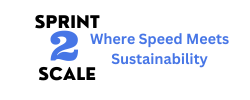Cultural paradigms and methodological ethos play a pivotal role in the successful implementation of Agile methodologies within organizations. Agile isn’t just about adopting a set of practices; it’s a cultural shift that requires a fundamental change in mindset and values. At its core, Agile promotes collaboration, adaptability, and a focus on delivering customer value iteratively.
One of the key cultural paradigms in Agile is the emphasis on individuals and interactions over processes and tools. This mindset shift recognizes that people are the driving force behind any project and encourages open communication, teamwork, and trust among team members. In an Agile environment, teams are empowered to make decisions collectively, fostering a sense of ownership and accountability.
Another crucial aspect of Agile culture is its commitment to embracing change. Traditional project management methodologies often resist change and attempt to plan every aspect of a project upfront. In contrast, Agile acknowledges that requirements are likely to evolve over time, and it encourages teams to adapt to changing circumstances quickly. This flexibility allows organizations to respond to market shifts, customer feedback, and emerging priorities more effectively.
Methodological ethos in Agile revolves around principles such as delivering working software frequently, collaborating with customers, and maintaining a sustainable pace of work. These principles guide the development process and shape the way teams approach their work. For example, the iterative nature of Agile development encourages teams to break down projects into smaller, manageable tasks and deliver incremental value with each iteration. This approach enables teams to receive early feedback, validate assumptions, and course-correct as needed, leading to higher-quality outcomes.
Overall, cultural paradigms and methodological ethos are essential components of Agile that influence how teams collaborate, communicate, and deliver value. By embracing these principles and fostering a culture of trust, openness, and adaptability, organizations can reap the benefits of Agile and respond more effectively to the ever-changing demands of today’s business landscape.
